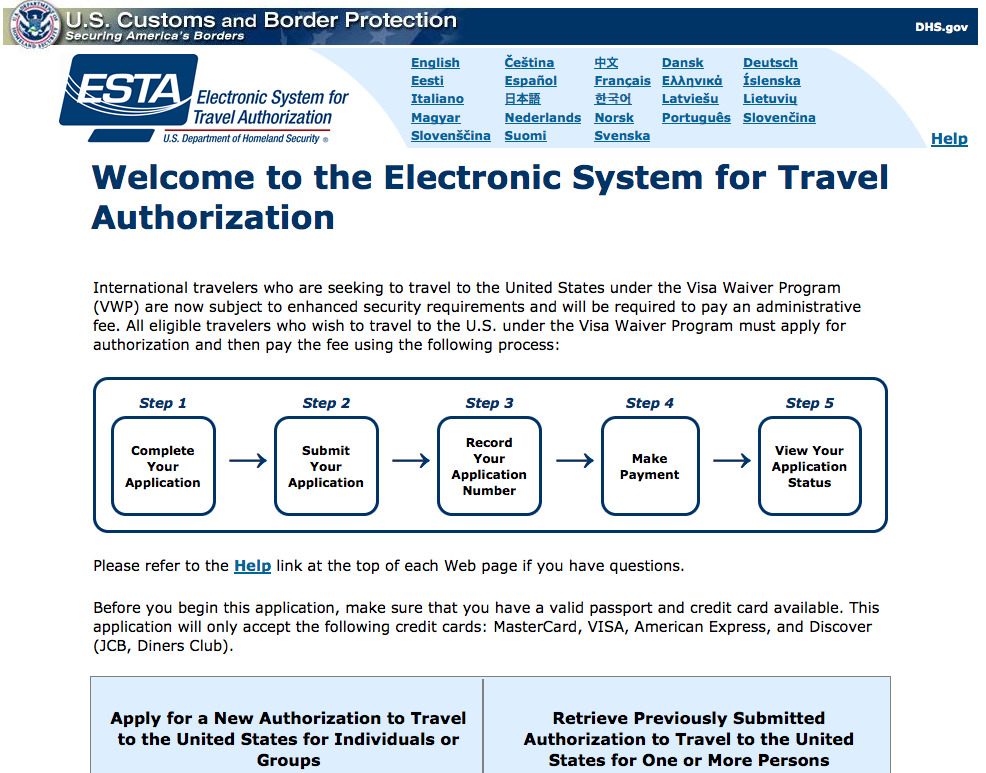Finding real happiness in our jobs
Tuesday, January 7th, 2014 at 2:36 pmWant to comment? There are threads on Google+ and Facebook
It is 2014 and you are reading a post that will be talk at a web development conference. We’re lucky. We are super lucky. We are part of an elite group of people who are in a market where companies come to court us. We are in a position to say no to some contracts and we are so tainted by now that we complain when companies we work for have lesser variety in the free lunches – things that proverbially don’t exist – than the other companies we hear about.

I’ve talked about this before in my “Reasons to be cheerful” and “The prestige of being a web developer” presentations and I stand by my word: there is nothing more exciting in IT than being a web developer. It is the only platform that has the openness, the decentralisation and the ever constant evolution that is necessary to meet the demands of people out there when it comes to interacting with computers. All of this, however, relies on things we seem to have forgotten about: longevity, reaching who we work for and constantly improving the platform we are dependent on.
The ebbing revolution
What do I mean by that? Well, I am disappointed. When the web came about and became widely available – even at a 56k connection – it was a revolution. It blew everything that came before it away:
- Merchants could sell products 24/7 and reach people far, far away without having to open a shop locally or print catalogues and get them delivered.
- Writers and other creatives could distribute without being hindered by contracts of publishers and an assurance of making money for everyone involved before getting creative.
- The fixed state of the interface was no more. I could resize the font if I needed it to be bigger, I could copy and paste some text into a translation engine to make the content accessible to me.
- Content distribution was without quality loss. Papers were sent in digital formats, openly readable by all instead of being faxed or sent as a Word document on a floppy disk
It was a shock to the system, a world-wide distribution platform and everybody was invited. It scared the hell out of old-school publishers and it still scares the hell out of governments and other people who’d like to keep information controlled and maybe even hidden. Much like the printing press scared the powers in charge when it was invented as it brought literacy to the people who otherwise weren’t allowed to be literate.
In Renaissance Europe, the arrival of mechanical movable type printing introduced the era of mass communication which permanently altered the structure of society. The relatively unrestricted circulation of information and (revolutionary) ideas transcended borders, captured the masses in the Reformation and threatened the power of political and religious authorities; the sharp increase in literacy broke the monopoly of the literate elite on education and learning and bolstered the emerging middle class.
The web is all that; and more. If we allow it to blossom and change and not turn into TV on steroids where people go to consume and forget about creation.
But enough about history, let’s fast forward through a period of abundance and ridiculous projects for us: the first Dotcom bubble, the current entrepreneurial avalanche and move on to the now.
We’re losing the web
The web was good to all of us – damn good – and it is slipping away from us. When the president of the United States of America declares that people should learn to “code” and not to “make”, I get worried (code is only a small part of building product to help humans, you also need interfaces and data). When schools get iPads instead of computers with editors I get worried. When we measure what we do by comparing us with the success of software products built for closed environments and in a fixed state then we have a real problem with our self-image.
The web replaced a large amount of desktop apps of old and made them hardware and location independent. Now we go back full cycle to a world where consuming web content means downloading and installing an app on your device – if it is available for yours, that is. This is not innovation – it is staying safe in an old monetization model of controlling the consumption and being able to make the consumption environment become outdated so people have to buy the newer, shinier, more expensive one. Giving up control is still anathema for many of our clients – but this is actually what the web is about. You give up control and trade it for lots more users and very simple software update cycles. The same way we have to finally get it into our heads that the user controls the experience and we can not force them into a certain resolution, hardware or browser. Then we reach the most users.
However, there is a problem: the larger part of the web still runs on outdated ideas and practices and therefore easily can be seen as inferior to native apps.
The web of others
When was the last time you saw a product used by millions and making a real difference to people being built with the things we all are excited about? I am not talking about the things that keep us busy – the Instagrams, the Twitters, the Imgurs – these are time sinks and escapism. I am talking about the things that keep the world moving. The banking sites, the booking systems, the email systems, the travel sites, government web sites, educational institutions. The solutions we promised when the web boomed to replace the clunky old desktop software, phone numbers and faxes.
Case in point: check out the beauty of the ESTA Visa waiver web site where you need to fill in your personal information if you want to travel to the States. Still, it beats the Indian counterpart which only works in Chrome or IE8, and from time to time has no working SSL certificate.


How come there is a big gap between what universities teach and what we do – we who are seen as magicians by people who just use the web? Of course universities are not there to teach the most current, unstable, state of affairs, but it has been over 15 years and a lot of coursework is still stuck with pre-CSS practices.
One main issue I see is a massive disconnect between the people who pay us and what they care about and our wants and needs. This becomes painfully obvious when you contract, build something and a few months later have to remove it from your portfolio as the maintenance crew completely changed or messed up the product.
Many times our clients don’t get excited about the things we get excited about. All they really want is to have the product delivered on budget, on time and in a state that does the job. I call this the “good enough” problem. Reaching a milestone in the product cycle is more important than the quality of the product. How many times have you heard a sentence like “yes, this is not up to our standard but it needs to get out the door. We’ll plan for a cleanup later”. That cleanup never happens though. And that frustrates us.
Navel gazing
So what do we do when we get frustrated? We look for other ways to get excited; quick wins and things that sound innovative and great. This is a very natural survival instinct – we deserve to be happy and if what we are asked to do doesn’t make us happy, we find other ways.

If the people who caused our frustration don’t understand what we do, we find solace in talking to those who do, namely us. We blog on design blogs, we create quick scripts and tools that are almost the same as another one we use (but not quite) and we get a warm fuzzy feeling when people applaud, upvote and tweet what we did for a day. We keep solving the same issues that have been solved, but this time we do it in node.js and python and ruby and not in PHP (just as an example). We run in circles but every year we get better and shinier shoes to run with. We keep busy.
This has become an epidemic. We are not fixing projects, we are not really communicating with the people who mess up all of our good intentions. We don’t even talk to the people who build the software platforms our work is dependent on. Instead, we come up with more and more plugins, build scripts, pre-processors and other abstractions that sound amazing and promise to make us more effective. This is navel gazing, it is escapism, and it won’t help us a bit in our quest to build great products with the web. The straw-man we erected is that our platform isn’t good, our workflow is broken and that standards are not evolving fast enough and that browsers always lag behind. Has this not always been the case? And how did we get here if everything is so terrible and in need of replacement? Is live reloading really that much of a lifesaver or is switching with cmd+tab and hitting cmd+r not something that could become muscle memory, like handling all the gears and pedals when driving a car?
Ironically we solve the problem of the people who we blame not to care about our work – we concentrate on delivering more in a shorter amount of time with lesser able developers. We’re heading toward an assembly line mentality where products are built by putting together things we don’t understand to create other things that can be shipped in vast numbers and lacking individual touches.
Finding genuine happiness
What it boils down to is motivation and sincere happiness. There is an excellent TED talk out there by Dan Ariely called “What makes us feel good about our work?” and it contains some very interesting concepts.
Dan’s research
As part of his research, Dan conducted an experiment: people in a study were asked to look at sheets of paper and count letters that are double. They are told that they get paid a certain amount of money for each sheet they work through. Every time they finish with a page the interviewers renegotiated the money people get, giving less and less with each sheet. The idea was to test when people say “no, that is not worth my time”.
The study tested three scenarios:
- In the first one people would put their name on the sheet, do the task and give the final sheet to a supervisor. This one would look at the sheet, nod and put in on a pile on the table.
- In the second scenario no name was added to the sheet and the supervisor would not look at the sheet, but instead just put it on the pile.
- In the third scenario no name was added and the supervisor would just shred the paper in front of the study participant without looking at either.
This lead to some very interesting findings. First of all, although people saw their papers being shredded without being looked at, they still did not cheat, although it’d be easy money. Secondly there was not much of a gap between the minimum viable price per sheet in the scenario where the paper was shredded to the one that was not looked at.
The most important part was not what happened to the paper or if money would still flow – it was adding a sense of ownership by adding a name and being recognised for having done the work. Validation was the most important part that kept people going.
The reward of creation
The other study was asking people to fold origami objects with or without detailed explanations. Instead of just paying people to do that, the supervisor afterwards asked people for how much these should be sold. Other participants were asked how much they would pay for the final products, not knowing how much work went into them. Not surprisingly the creators of the origami structures valued them much higher than the ones who were asked to buy them. The origami structures done without detailed explanations were of lesser visual quality, which lead the prospective buyers to value them even less, whereas the makers ranked them higher, as more work went into them.
Dan calls this the IKEA principle – if you make people assemble something with very simple instructions but that still needed some extra work people value it much more. The other example he showed that explained this were ready-made cake bake mixtures. These were not a big seller, although they promised homemakers to save a lot of time. They became much more successful when the company making them removed the egg powder and asked people to add an egg. This meant people customised the cake – if only a bit – and got a feeling that they achieved something when they bake a cake. Furthermore, adding fresh eggs made for higher quality cakes at the same time.
This all sounds amazingly familiar, doesn’t it?
Finding real happiness in our jobs
There is a reason I am so happy to be a web developer: I fought for it. I didn’t start in a time where advice I got was to “use build script X and library Y and you are done”. I didn’t start in a time where browsers had developer tools built in. I did start in a time where browsers were not even remotely rendering the same and there was no predictable way to tell why things went wrong. That’s why I can enjoy what we have. That’s why I can marvel at the fact that I could do a button with rounded corners, drop shadows and a gradient in a few lines of CSS now and make it smoothly transition to another state without a single line of script.
This is happiness we don’t allow newcomers into our market to find these days as we force-feed them quick solutions that make us more effective but to them are just tools to put together. Instead of explaining outlines and brush strokes and pens we give them a paint-by-number template and wonder when there is not much excitement once they finished painting it out. We don’t allow people to feel ownership, to discover on their own terms how to do things, and thus we get a new generation of developers who see the web as a half-baked development environment compared to others. We don’t make newcomers happy by keeping them from making mistakes or find out about bugs. We bore them instead as we don’t challenge them.
Instead of creating a weekly abstraction to a problem and declaring it better than anything the W3C agrees on maybe it is time for us “in the know” to take our ideas elsewhere. It is time to make the whole web better, not the shiny echosphere we work in. This means we should talk more to product managers, project managers, CEOs, CMS creators, framework people, enterprise software developers – all the people that we see as not caring for what we care for and we’ve been ignoring as being boring.
These are the people who build the enterprise solutions we are baffled by. These are the people who need to deal with compliance and certifcations before they can work. And for that, they need standards, not awesomesauce.js or amazingstuff.io.
We chickened out having these hard and tiring conversations for too long. But they are worth having. Only when people realise just how much a labour of love a working, progressively enhancing interface that works across devices is we will get the recognition we deserve. We will not have our papers shredded in front of us, but get the nod instead. Right now we are being paid ridiculous amounts of money to do something other people do not want to care about. This is cushy, but leaves us empty and unappreciated on a intellectual level.
This is not the time to feel important about ourselves. This is not the time to make us more effective without people knowing what we do. This is the time to be experts who care for the platform that enabled us to be who we are. Each and everyone of you has it in you to make sure that what we do right now will continue to be good to us. This is the time to bring that out and use it.